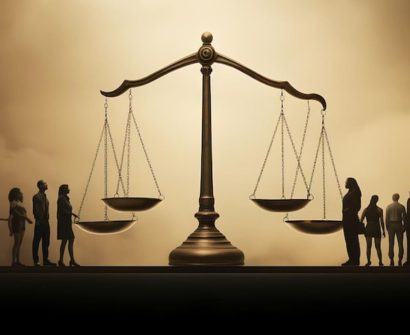
In recent years, India, a country with an extensive history of culture and an intricate socio-legal system, has experienced an important change in how it views the rights of homosexual couples. Although the journey to equality doesn’t come without challenges, it has also been marked by important legislative successes and shifting views among the public.
homosexual couples: Who are They?
- This is a romantic or sexual partnership involving individuals of the same gender.
- In nations where same-sex marriage is not practiced, civil unions may be recognized as a type of connection; same-sex marriage relates to the institutional recognition of such relationships as marriage.
- It is nothing more than a persistent inclination to feel sexually attracted to someone of the same sex. In an attempt to determine why homosexuality occurs in humans, scientists have conducted a number of studies. Few biological hypotheses propose that an individual’s sexual orientation is influenced by their early uterine environment, their genetic makeup, or both in combination.
lgbtqia+ rights
- Transgender individuals ought to be recognized as the third gender category, according to a 2014 Supreme Court of India ruling.
- The rights of lgbtqia+ community in the nation was granted the ability to openly disclose their sexual orientation by the Supreme Court in 2017.
- A person’s sexual orientation is protected under their right to privacy.
- The Supreme Court invalidated the portion of Section 377 that made consensual gay behavior illegal on September 6, 2018.
- The Transgender Persons (Protection of Rights) Act was passed by Parliament in 2019 with the intention of ensuring the welfare and protection of transgender individuals as well as other relevant issues.
homosexual marriage: Indian Constitution
- It is also defined as same sex marriage. The Indian Constitution recognizes the right to marriage as a statutory right rather than as a fundamental or constitutional one.
- Even though marriage is governed by a number of legislative acts, India’s Supreme Court rulings are the only ones that have led to marriage’s recognition as a basic right. As per Article 141 of the Constitution, a court anywhere in India must follow such a statement of law.
homosexual rights in india
- All types of consenting but non-begetting sex became outlawed when the Indian Penal Code, 1860, was implemented by the British colonialist administration under Section 377.
- Not only did the oppressive law target homosexuals, but it also targeted all other forms of contemporary sexual activity, including relationships between heterosexuals.
- Therefore, in a representative democratic democracy such as India, this norm was little more than a relic from Victorian orthodoxy.
- Regretfully, it took more than 70 years and over two decades of legal disputes to repeal this outdated law, which had become a means of harassing and abusing anyone who did not conform to the conventional binary of gender and sexual orientation.
- Currently for homosexual rights, Section 377 of the Indian Penal Code, 1860 has been partially repealed, and homosexuality is legal in India.
- Activities pertaining to sexual relations with people under the age of eighteen, bestiality, and non-consensual sexual acts are still included under this section.
homosexual relationships: Initiatives to be Taken by Government to Protect Them
- Anti-discrimination Legislation: The LGTBQ+ community requires a legislation that forbids discrimination and sets the responsibility for change on the state, society, and individual levels while enabling them to create fulfilling lives and relationships regardless of their gender identity or sexual orientation.
- Elimination of Distinctness: Since same-sex marriage would remove LGBTQ+ individuals’ official “otherness” status, it would aid in the reduction of various forms of discrimination against them.
- Whole Spectrum of Rights: Since members of the LGBTQ+ community “are entitled to the full range of constitutional rights,” same-sex couples planning a marriage must unquestionably be granted the basic freedom to marry an individual of their choice.
- Raising Awareness and Giving LGBTQ+ Youth Power: In order for them to feel acknowledged and at ease discussing their emotions, an accessible and open platform is required.
Conclusion
Despite the fact that homosexuality was decriminalized in 2018 due to a Supreme Court decision, gays and transgender individuals are still denied access to other human rights and liberties including marriage, adoption, and insurance. The way ahead is usually the way forward. But more than four years after homosexuality was made legal, the Indian government’s approach to promoting LGBTQIA+ dignity has been a standstill, if not an attempt to regress, as evidenced by its pursuit of the dismissal of petitions asking for the legalization of same-sex unions.
The public’s morals are evolving along with the times. The definition of marriage should be expanded to include the civil status, state, or connection of two persons who are joined in law for life, rather than only a man and woman relationship. Recognizing that same-sex couples possess the same fundamental right to marry and enjoy all marital rights as everyone else is long overdue.










